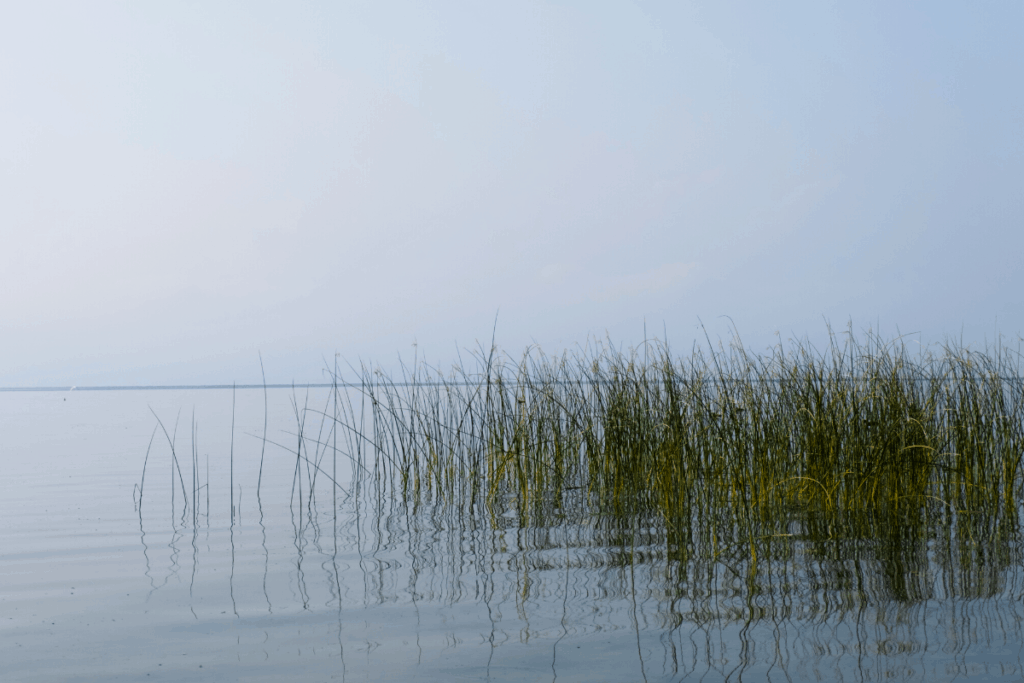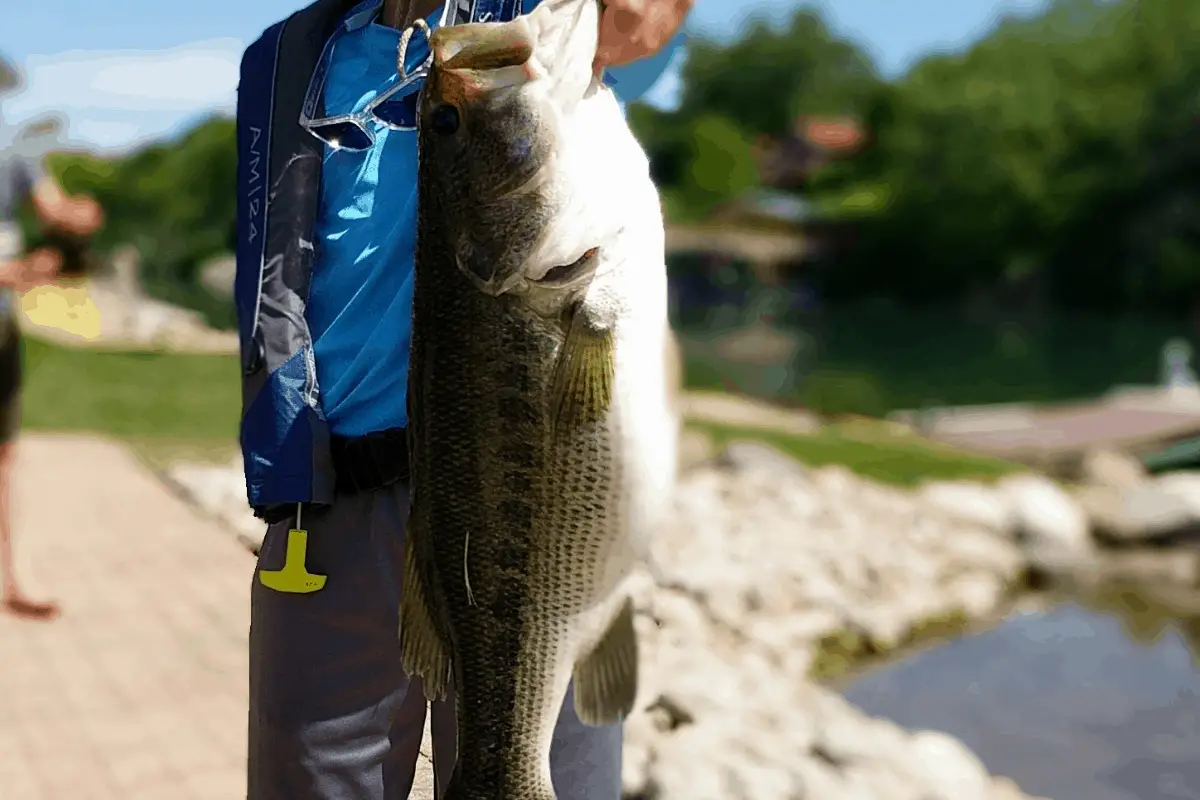Anyone that loves to bass fish dreams about catching a real giant – that fish that brings the smartphone out and makes all your friends jealous. Yet it seems like an entire season can go by without pulling in anything more than the average size. Believe me, that is just fine! I love to catch bass no matter the size, but there comes a moment when we really want to land that trophy a little more often.
To consistently land monster bass, there are four things you need to keep in mind: how fast you fish, the location, the size of the lure, and the quality of the rod you are using.
These four tips have been compiled from thousands of hours on the water. Not only fishing on my own, but with some of the best anglers in the industry.
Lure Speed for Giant Bass
As bass anglers, we tend to fish too quickly 99% of the time. Yes, there are moments when ripping or burning a lure can trigger a dynamite reaction strike, but if you want to put the odds in your favor – slow down.
Some of the biggest fish I have ever caught slurped up that lure when it was just sitting motionless on the bottom. Sometimes I was picking out a backlash. Other times I was completely focused on something else, like a text message, and my bait was soaking for a long time without any action imparted by me at all.
In either situation, the result was the same. The lure was sitting without my over working it.
Swimbaits are all the rage right now. So are glide baits. These lures are most effective and elicit giant bites when they are fished at a slow and rhythmic cadence. These lures give off the impression of an easy meal and that is what big bass want. The last thing they want to do is chase something all over creation. Burning more calories than you take in is not the way to grow huge.
If you really want to make sure that overworking a lure is not an issue, try deadsticking it. This popular method involves casting the lure out and then letting it sit. And sit. And sit.
This works well with Ned Rigs, Shaky Heads, Jigs, Stick Baits – the list goes on.
Most waters that we fish have enough current, like convection currents of rising and sinking water, that a lifelike motion is imparted onto the lures without our additional help.
It really works, but it takes strong mental fortitude to pull it off. We want to move those lures so bad. Just let it sit. You will be surprised at the results.

Where Trophy Bass Like to Hide
In my experience, this may be the most important factor any angler can consider. A monster bass did not get that way by constantly competing for food with other bass. That is why I have found that isolated cover holds many more big bass than larger pieces of cover.
Let me explain.
If you are fishing a huge weed bed in the middle of the summer, look for those smaller clumps of vegetation off on their own. If I had to use an analogy, it would be like an island of grass away from the larger mainland.
If you see a single isolated stump away from other woody cover, target the isolated one. It probably has got the bigger fish on it.
A big bass owns that piece of cover. They are the boss. That spot is theirs. You could say they are the king of the hill. That is what they want.
Big bass hate sharing with others. They don’t play nice.
Isolated cover is also less pressured. Most anglers head right for the large weedbed or the big grass mat. They want to pick apart a huge brush pile. All of these are natural instincts, but as you maneuver toward that big weedbed, be wary of the smaller patch that is nearby. I bet that is where the big one is at.
Lure Size to Target Trophy Bass
I call it the “potato chip” theory. If I am going to exert the energy to get off the couch and walk to the kitchen, you better believe I am not coming back to the couch with only one potato chip. No sir. I am either going to fill a bowl up or, better yet, I’m coming back with the entire bag and its all mine.
The same mindset applies to lure selection. We have all heard the mantra, “big baits catch big bass.”
They do.
Yes, plenty of bruisers come from finesse lures and presentations, but if you really want to up the odds of catching a real trophy, tie on a lure that will make it worth that big bass’s effort.
The swimbait experts from California would agree with me. They fling huge lures that mimic trout. Those giant bass feed on those things and grow to incredible sizes. We can apply that same logic to any body of water we fish.
You may not get as many bites, but the bites that you do get are apt to be from a better quality fish. Maybe even the fish of a lifetime.
Rod Choice to Land Big Bass
I cannot emphasize enough the importance of a quality rod when targeting trophy fish. These huge bass offer up almost imperceptible bites. When they are finally ready to eat that lure you are throwing, a big fish will flare those gills and turn on the vacuum. They inhale the bait more than they go and get it.
The “thump” that you feel is the lure being sucked into their mouth.
This is why a sensitive rod is a must for catching big bass. Otherwise, you may never know that a giant even had your lure in their mouth.
Time-and-time again the lightest bites are from the biggest bass.
Along with a quality rod with good sensitivity, I like to use braided line with a fluorocarbon leader. This provides a low-stretch connection to that lure that telegraphs those slight thumps right back to the rod.
There have been times when a partner I am fishing with catches nothing. I know fish are there because I am getting bit. I hand them my rod and soon after they start to pull fish in as well. A sensitive rod is well worth the investment.
Final Thoughts
If you want to catch the biggest bass in the lake, take these four tips into consideration. It will help increase your odds of taking a photo of a true giant. Good luck out there.

